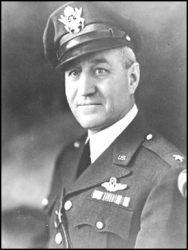
1890-1965 |
 |
Commander, Langley Air Force Base Photo Courtesy LANGLEY LINK LANGLEY AFB |
|
"Our Mission: Honor Michigan's Aviation and Space pioneers by inducting them into Michigan Aviation Hall of Fame at an annual Enshrinement Program, highlight the outstanding achievements of aviation/space organizations or groups through an annual "Arthur P. Tesner Spirit of Flight" award." Ralph Royce While on the site, I recommend that you sample the other features and enjoy the capsule biographies of the other 68 enshrinees. |
 |
|
The 16 officers of the 1st Aero Squadron pose before some of the unit's 77 enlisted men and eight aircraft at San Diego, Calif. in September 1914 From The AVIATION HISTORY Magazine |
|
In Pursuit of Pancho Villa Taking part in Brig. Gen. John J. Pershing 1916 Mexican expedition was a learning experience for the U. S. Army's first air arm-- mainly in respect to its own deficiencies. by Gary Glynn The worried young pilot flew south, deeper into hostile territory, navigating by the stars. Below the fabric-covered wings of his Curtiss JN-3 "Jenny" darkness had already obscured the unfamiliar landscape of northern Mexico. Lieutenant Edgar S. Gorrell had never flown at night before, and his engine was overheating. The flight had been jinxed from the start. Pre-flight preparations consumed more time than expected, so the eight planes of the 1st Aero Squadron had not taken off until late in the afternoon on March 19, 1916. Not long after they flew south from Columbus, New Mexico, Lieutenant Walter G. Kilner had turned back with engine problems. Navigation errors contributed to the squadron's problems. Each plane carried a different type of compass, and the aviators were equipped with poor maps. Only one flier, Lieutenant Townsend F. Dodd, had ever made a night flight before. |
 |
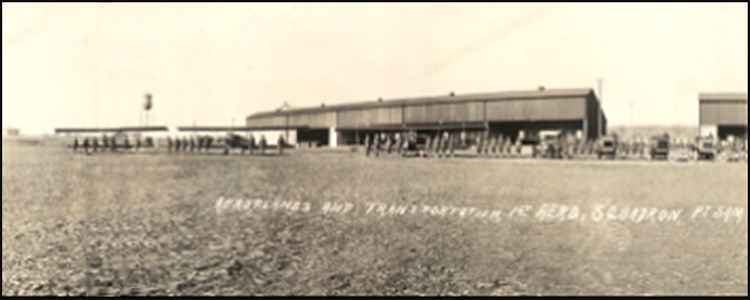 |
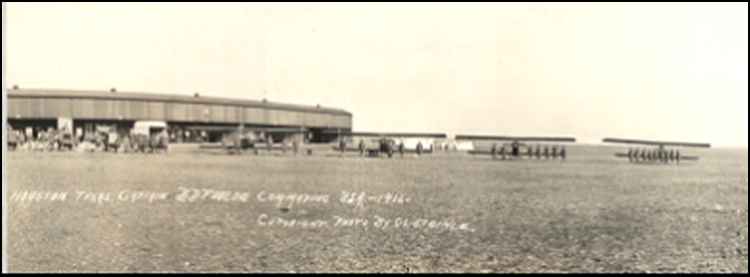 |
|
Library of Congress Collection, 9-14-07 |
|
MEXICAN PUNITIVE EXPEDITION, 1916 By Capt. Benjamin D. Foulois, Signal Corps, U.S. Army Harold and many other Early Birds are mentioned in this story. You can access it by clicking on: First Aero Squadron |
|
American Expeditionary Force (AEF The first U.S. air unit sent to Europe was the 1st Aero Squadron, the same outfit which had served under Pershing on the Mexican Border in 1916. Under command of Maj. Ralph Royce, it arrived in France Sep. 3, 1917. Other squadrons gradually arrived but all had to be equipped with airplanes and trained, a time-consuming process. Meanwhile, most of the American pilots of the Escadrille Lafayette were commissioned as U.S.Army officers and on Feb. 18, 1918 when the unit became the 103d Aero Sq. of the Air Service, A.E.F., its French enlisted ground personnel were replaced by U.S. troops. Since the 103d remained on the Front under French control without any interruption in its combat activity, it had the honor of being the first U.S. Air Service unit in aerial combat over the Western Front. |
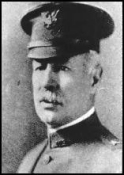 |
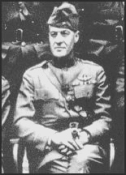 |
|
became Chief of Air Service, AEF in May 1918. |
|
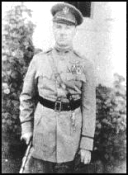 |
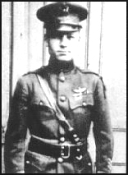 |
Chief of Air Service, Army Group commanded all Air Service units on the Front. |
Chief of Air Service, First Army. |
|
Highly Recommended Link for Further Study
HISTORY SECTION of LANGLEY LINK - The Public Site for LANGLEY AFB Langley History - Past Commanders |
|
From The Early Birds of Aviation Roster, 1996 |


|